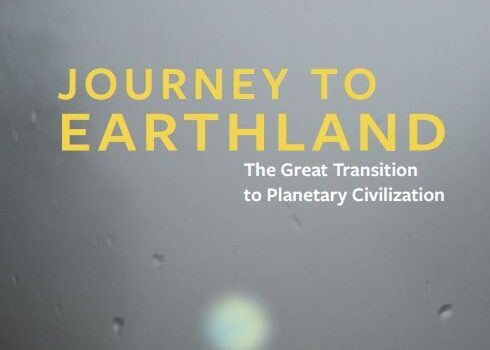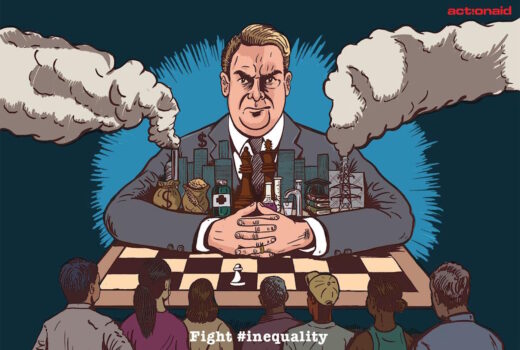Topic: People's movements
Commoning governance: a shift in the value regime
Article / 24th March 2017Today, a new value regime is being born, one that is not based on surplus value created in the market through capital and labour, but through contributions that are recognized as such by ‘sovereign value communities’. The question is: how can we, ourselves, create and control the surplus value that we create through our work, and reinvest it in autonomous peer production communities?
Initiating a global citizens movement for the great transition
Article / 28th February 2017A new publication by The Great Transition Initiative provides an inspiring vision of a more equal, vibrant and sustainable civilisation. From STWR’s perspective, all that it lacks is a sufficient focus on the critical needs of the very poorest citizens—which could ultimately forge the global solidarity needed to bring that new world into being.
Die Sharing Economy: Eine Zeit des Herzens
Report / 28th February 2017#Die wahre Sharing Economy repräsentiert das Ende einer Ära, definiert von Streben nach Gewinn und wettbewerbsfähigem Eigeninteresse, während ein neues Zeitalter des zwischenstaatlichen Austausches und der Zusammenarbeit in einer Welt, die solch eine Fülle von Finanzkapital und verfügbaren Ressourcen hat, erst durch die Beendigung des weltweiten Hungers beginnen kann.
Inequality is worse than you think. And yes, we have the data
Blog / 18th February 2017Extreme inequality traps people in poverty and must be stopped. Even the World Bank agrees that eliminating poverty will be impossible unless we simultaneously act to close the gap between rich and poor, writes Nick Galasso for Oxfam International.
A viable billionaire tax?
Report / 27th January 2017A new paper makes the case that a global billionaire tax is ethical, good for growth, and could solve a lot of the world’s problems - and what’s more, it’s politically viable, explains Josh Hoxie.
The great British make off: how a new materialism can give us back control
Blog / 25th January 2017The New Economics Foundation has long made the case for a richer relationship with 'stuff' that can help turn the tables on our abusive consumer culture. The good news is that a new form of materialism is already emerging; everywhere people are beginning to make, do, share and get involved, writes Ruth Potts.
People’s power vs. rising inequality: Demanding change locally, nationally, & globally
Report / 19th January 2017As the world’s media showcase Donald Trump and the World Economic Forum, ActionAid urge us to stay focused on the presence of social movements that pose the real solution to rising inequality. Only people’s power, united across borders, can reverse the hoarding of power and wealth by a tiny elite, re-democratizing our politics, our societies, and our economies. The following extract is taken from ActionAid's latest brief [pdf] that summarises the publications from its Inequality Series.
The scourge of inequality: There can be no peace or freedom while it persists
Article / 18th January 2017What we are witnessing in South Africa and around the world is an inequality emergency, and the solutions require all of us to listen to the most marginalised and co-operate with all. Once again we need to follow the inspiration of our young people, and work towards building a mass social movement that fights for economic transformation, writes Jay Naidoo.
Open letter to President-elect Trump: negotiate nuclear zero
Blog / 18th January 2017As president of the United States, you will have the grave responsibility of assuring that nuclear weapons are not overtly threatened or used during your term of office. The most certain way to fulfill this responsibility is to negotiate with the other possessors of nuclear weapons for their total elimination.
Just 8 men own same wealth as half the world
Report / 16th January 2017Eight men own the same wealth as the 3.6 billion people who make up the poorest half of humanity, according to a new report published by Oxfam today to mark the annual meeting of political and business leaders in Davos.




